
Harvey Milk’s Legacy: Connecting the Dots from Past to Present
By Norm Kent
December, 2008
“My name is Harvey Milk, and I am here to recruit you.”
Anyone who was alive then has to see this movie now.
As 2008 comes to a close, the month of November has turned out to be a defining moment in the evolution of gay American history.
Call it a collage of circumstance, but the past has met the present, and today it defines our future.
It was November of 1978 when the first openly gay office holder in California, Harvey Milk, was slain by a disgruntled colleague on the San Francisco Board of Supervisors. A chronicle of his life and death came last week to the big screen, a mainstream studio film starring a renowned actor, Sean Penn. Rapidly winning critical acclaim, the historically accurate film is riveting and compelling.
Years ago, a renowned lesbian writer named Patricia Nell Warren authored a ground breaking gay novel, The Front Runner, featuring a youthful track star and the gay coach who loved him. It never made it to the movies. No major star wanted to play the role of a gay man. No major studio would bankroll a film based on a gay love affair. We lived in a different world three decades ago.
South Floridians who have lived here long enough will also remember the progressive human rights ordinance enacted by the Dade County Commission in 1977, protecting the rights of gays and lesbians. We will also recall the successful initiative to repeal it, led by Anita Bryant, the Orange Juice Queen. Rare footage of what happened in Miami, Florida is captured in the film on Harvey Milk. Those are pictures you won’t find in this week’s magazines capturing last week’s White Party.
The history of South Florida’s struggle thirty years ago is also the focus of a new book by Fred Fejes, a well known local educator. The Blade covered its release, showcased for the Stonewall Library, housed in a wing of a public library on East Sunrise Blvd. in Fort Lauderdale. Thirty years ago, gays who treaded openly along East Sunrise Blvd. in Fort Lauderdale would more likely wind up being housed in the city jail.
This week, a leading candidate for a Presidential appointment to head national AIDS policy is an HIV-positive gay man. Vizcaya again hosted the White Party, South Florida’s annual testimony to an ongoing struggle against AIDS. It was a battle Harvey Milk never had to fight. He was shot and killed less than a year after he took office, years before we would hear the words ‘Gay Related Immune Syndrome.’ Still, he would be proud of the way that the gay community has raised hundreds of millions of dollars on its own to fight this pandemic.
Last week, while supporters of the Miami Dade Gay and Lesbian Film Festival were gathering at a benefit for the Harvey Milk film, Circuit Court Judge Cindy Lederman was striking down as unconstitutional a Florida statute banning gays and lesbians from adoption. The law was created thirty years ago in response to Anita Bryant’s unrighteous campaign.
Yet here we were again, only last month, in California, Florida, and elsewhere organizing voters not to approve a constitutional amendment limiting marriage to unions of only men and women. We were defeated, but this is simply a setback within a larger cause. We have not lost ground. We are picking at sacred institutions, and temples do not fall lightly.
One of the things you learn about Harvey Milk in the film is how he galvanized his legions after every defeat. On November 15, 2008, a week after losing the marriage amendments in three states, gays and lesbians spontaneously protested in fifty. We did so without the help of fancy gay bureaucrats at the HRC in DC holding banquets. With new leaders, younger voices, and the promise of tomorrow at our doorstep, I have confidence in the future.
Last week, I went to the funeral of another gay American hero. He led no marches. He spoke at no rallies. He simply did his job, and died in the line of duty. His name was Alex Del Rio and he was a 31 year old gay cop serving the city of Hollywood. To the thousands of friends and fellow law enforcement professionals attending his rites, it did not matter that he was gay.
Harvey Milk opened the doors yesterday that invite gay men throughout our community today to run and serve openly on city commissions, in the judiciary, or even in law enforcement.
“If Athens shall appear great to you” wrote Aeschylus, “consider that the city purchased its honor simply by good men doing their duty.” If we continue to stand our ground and there abide, in our time or the future, eventually the whole world will come ‘round to us.
I met Harvey Milk only once, in the summer of 1975, on Castro Street. I told him I had just finished law school at Hofstra University, on Long Island, in New York State, and that I was thinking about relocating to San Francisco or Southern Florida. I shared that like him, I was from Woodmere, New York, a point he would raise in so many of his spirited speeches.
“Well, then come move out here with me,” he said, “and we will change the world.”
Harvey paid the ultimate price, but made a unique difference. We all owe him a debt we can only pay forward by fighting that same fight.
By Norm Kent
December, 2008
“My name is Harvey Milk, and I am here to recruit you.”
Anyone who was alive then has to see this movie now.
As 2008 comes to a close, the month of November has turned out to be a defining moment in the evolution of gay American history.
Call it a collage of circumstance, but the past has met the present, and today it defines our future.
It was November of 1978 when the first openly gay office holder in California, Harvey Milk, was slain by a disgruntled colleague on the San Francisco Board of Supervisors. A chronicle of his life and death came last week to the big screen, a mainstream studio film starring a renowned actor, Sean Penn. Rapidly winning critical acclaim, the historically accurate film is riveting and compelling.
Years ago, a renowned lesbian writer named Patricia Nell Warren authored a ground breaking gay novel, The Front Runner, featuring a youthful track star and the gay coach who loved him. It never made it to the movies. No major star wanted to play the role of a gay man. No major studio would bankroll a film based on a gay love affair. We lived in a different world three decades ago.
South Floridians who have lived here long enough will also remember the progressive human rights ordinance enacted by the Dade County Commission in 1977, protecting the rights of gays and lesbians. We will also recall the successful initiative to repeal it, led by Anita Bryant, the Orange Juice Queen. Rare footage of what happened in Miami, Florida is captured in the film on Harvey Milk. Those are pictures you won’t find in this week’s magazines capturing last week’s White Party.
The history of South Florida’s struggle thirty years ago is also the focus of a new book by Fred Fejes, a well known local educator. The Blade covered its release, showcased for the Stonewall Library, housed in a wing of a public library on East Sunrise Blvd. in Fort Lauderdale. Thirty years ago, gays who treaded openly along East Sunrise Blvd. in Fort Lauderdale would more likely wind up being housed in the city jail.
This week, a leading candidate for a Presidential appointment to head national AIDS policy is an HIV-positive gay man. Vizcaya again hosted the White Party, South Florida’s annual testimony to an ongoing struggle against AIDS. It was a battle Harvey Milk never had to fight. He was shot and killed less than a year after he took office, years before we would hear the words ‘Gay Related Immune Syndrome.’ Still, he would be proud of the way that the gay community has raised hundreds of millions of dollars on its own to fight this pandemic.
Last week, while supporters of the Miami Dade Gay and Lesbian Film Festival were gathering at a benefit for the Harvey Milk film, Circuit Court Judge Cindy Lederman was striking down as unconstitutional a Florida statute banning gays and lesbians from adoption. The law was created thirty years ago in response to Anita Bryant’s unrighteous campaign.
Yet here we were again, only last month, in California, Florida, and elsewhere organizing voters not to approve a constitutional amendment limiting marriage to unions of only men and women. We were defeated, but this is simply a setback within a larger cause. We have not lost ground. We are picking at sacred institutions, and temples do not fall lightly.
One of the things you learn about Harvey Milk in the film is how he galvanized his legions after every defeat. On November 15, 2008, a week after losing the marriage amendments in three states, gays and lesbians spontaneously protested in fifty. We did so without the help of fancy gay bureaucrats at the HRC in DC holding banquets. With new leaders, younger voices, and the promise of tomorrow at our doorstep, I have confidence in the future.
Last week, I went to the funeral of another gay American hero. He led no marches. He spoke at no rallies. He simply did his job, and died in the line of duty. His name was Alex Del Rio and he was a 31 year old gay cop serving the city of Hollywood. To the thousands of friends and fellow law enforcement professionals attending his rites, it did not matter that he was gay.
Harvey Milk opened the doors yesterday that invite gay men throughout our community today to run and serve openly on city commissions, in the judiciary, or even in law enforcement.
“If Athens shall appear great to you” wrote Aeschylus, “consider that the city purchased its honor simply by good men doing their duty.” If we continue to stand our ground and there abide, in our time or the future, eventually the whole world will come ‘round to us.
I met Harvey Milk only once, in the summer of 1975, on Castro Street. I told him I had just finished law school at Hofstra University, on Long Island, in New York State, and that I was thinking about relocating to San Francisco or Southern Florida. I shared that like him, I was from Woodmere, New York, a point he would raise in so many of his spirited speeches.
“Well, then come move out here with me,” he said, “and we will change the world.”
Harvey paid the ultimate price, but made a unique difference. We all owe him a debt we can only pay forward by fighting that same fight.


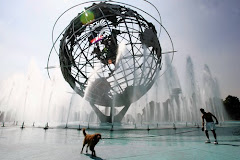
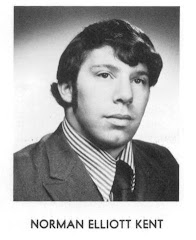





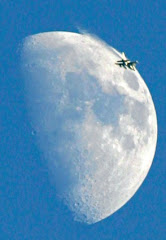





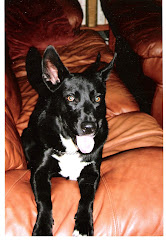.jpg)






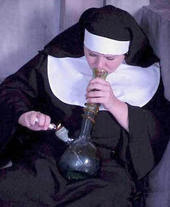




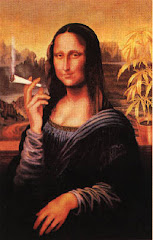



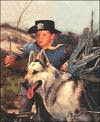

No comments:
Post a Comment